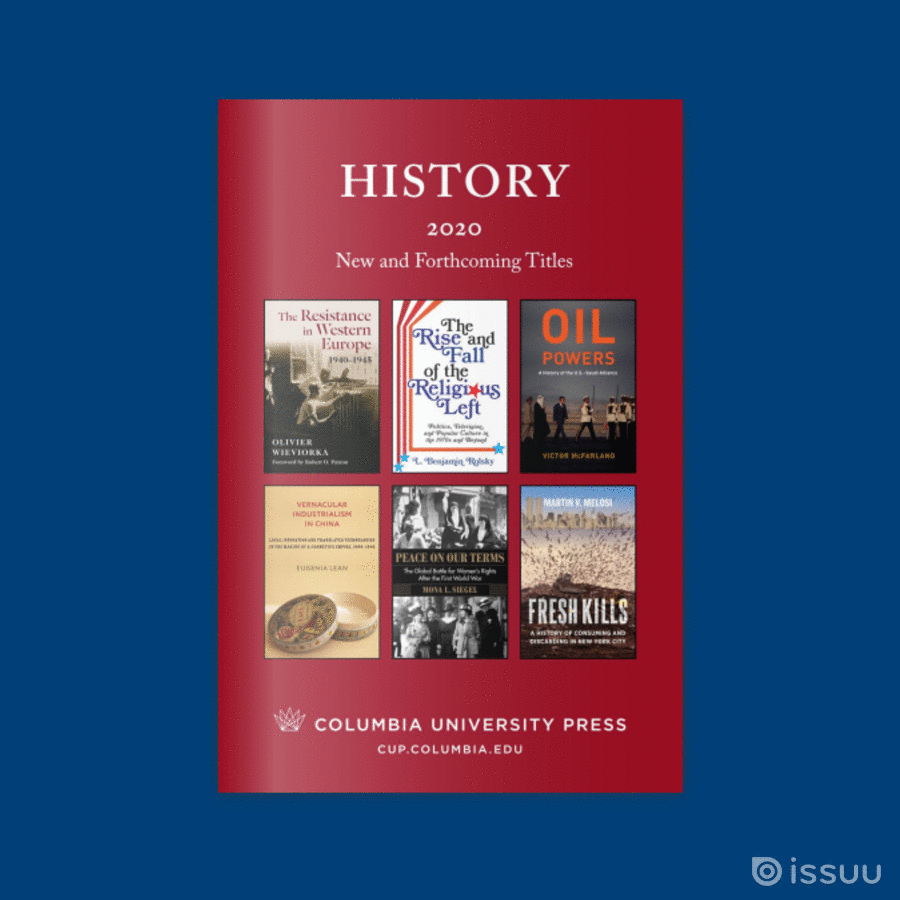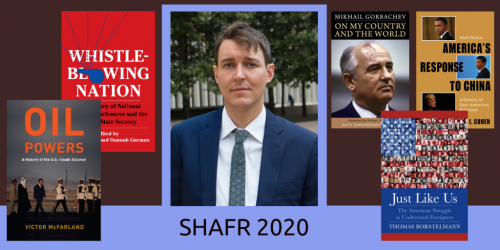Announcing Our 2020 History Catalog

Letter from the editor:
We are delighted to present the 2020 Columbia University Press history catalog. The titles featured here demonstrate the vibrancy of Columbia University Press’s list as we continue a long tradition of publishing top scholarship, ranging from the history of U.S. capitalism to global and international history.
Columbia’s American history list has two cornerstones: the history of U.S. foreign relations and the history of U.S. capitalism. In the Columbia Studies of the History of U.S. Capitalism series, we are pleased to announce two new books that will publish in the spring of 2020. Alex Sayf Cummings’s Brain Magnet: Research Triangle Park and the Idea of the Idea Economy studies the midcentury boosterism that created North Carolina’s famed Research Triangle Park and the first blueprints for the postindustrial knowledge economy. Paige Glotzer’s How the Suburbs Were Segregated: Developers and the Business of Exclusionary Housing, 1890–1960 examines the development of Baltimore’s wealthiest, whitest neighborhoods in the late nineteenth century and the deep roots of suburban segregation.
In the history of American foreign relations, we have several new books that explore security, diplomacy, and soft power. In Oil Powers: A History of the U.S.-Saudi Alliance, Victor McFarland takes a critical look at the roots of the U.S.-Saudi alliance as not just an inevitable consequence of American energy demand and Saudi oil reserves but also as a dense political, economic, and social network bolstered by royal and executive power. In Whistleblowing Nation: The History of National Security Disclosures and the Cult of State Secrecy, Kaeten Mistry and Hannah Gurman cut a pathbreaking history of national security disclosures and state secrecy from World War I to the present, analyzing the complex politics, motives, and ideologies behind the revelation of state secrets that challenge the status quo. Thomas Borstelmann’s Just Like Us: The American Struggle to Understand Foreigners powerfully depicts the good and the bad in how Americans have seen others at home and abroad through the nation’s history.
New global and international histories, like Mona L. Siegel’s Peace on Our Terms: The Global Battle for Women’s Rights After the First World War, bring forward unheard and underrepresented voices. In our Columbia Studies in International and Global History series, Raja Adal’s Beauty in the Age of Empire: Japan, Egypt, and the Global History of Aesthetic Education examines how globalizing forms of art and cultural education became a force for state-building and nationalism, and Michael Christopher Low’s Imperial Mecca: Ottoman Arabia and the Indian Ocean Hajj studies the contested nature of pilgrimage to the holy city during an age of modernization. M’hamed Oualdi’s A Slave Between Empires: A Transimperial History of North Africa looks at the way individuals moved between modern imperial regimes as they rose and fell. These stories, both local and global, complement a wide array of regional histories from around the world—from a tale of the resistance in World War II-era Western Europe to a new account of China’s Republican-era policy toward Tibet—that Columbia is proud to publish in the coming year.
We hope you share our enthusiasm for these books and the course they mark for the future of our list.
Sincerely,
Caelyn Cobb, editor for global history
Stephen Wesley, editor for U.S. history








